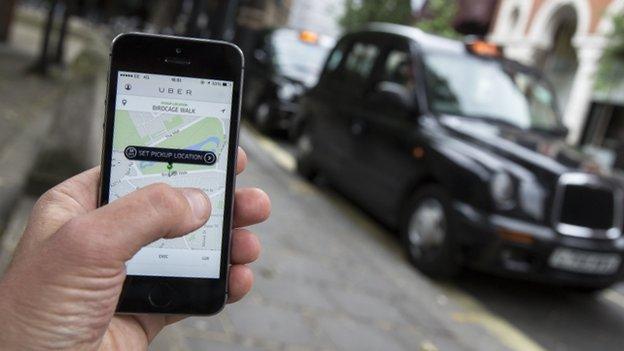Taxi drivers take to the streets to battle phone app
- Published
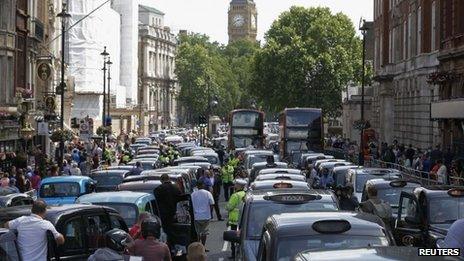
Taxi drivers blocked roads around Whitehall and Trafalgar Square
The sound of horns could be heard from Trafalgar Square to Whitehall as taxi drivers audibly registered their disapproval at Transport for London (TfL) and rival service Uber - a mobile phone app.
A queue of traffic snaked from Trafalgar Square back to Haymarket and beyond, causing gridlock as far back as Regent Street.
The majority of vehicles assembled were black cabs, however there were also some buses and coaches trapped in the turmoil, unable to move.
Amid this man-made mass of mayhem was cabbie Afraj Mirah, one-time minicab radio controller, now the proud driver of a Hackney carriage of the past three years.
"I wanted to drive the most iconic and famous cab in the world," he says.
But he is one of many taxi operators who are angry about what they say is a lack of regulation of the use of Uber - a smartphone app which allows licensed drivers to measure the distance customers travel and calculate the fare using GPS.
Cab drivers say it is little different to using a taxi meter - which only they are legally entitled to do.
"TfL restricts us so much - we can't do anything - so why should it be one rule for us and another rule for them?" Mr Mirah pleaded.
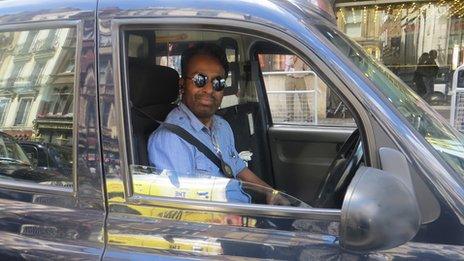
Afraj Mirah questioned why TfL does not place more restrictions on Uber
Standing beside her cab on Whitehall, Sasha Simmons is angry.
She started driving a year ago and, like her colleagues, spent years learning "The Knowledge", memorising hundreds of journeys and street names.
"We are used to competition," the 46-year-old says, gesturing around the road.
"We have had competition with minicabs for years."
What Sasha is worried about is passenger safety.
"It's like training to be a teacher and then being told you don't need a degree you can just download an app and learn it off that instead."
Fellow cabbie Iain Reeves agrees: "What are TfL? They are there to regulate and they are not regulating.
"To be a cab driver you have to train for four years, to be an Uber driver you just have to say 'Yes please'."
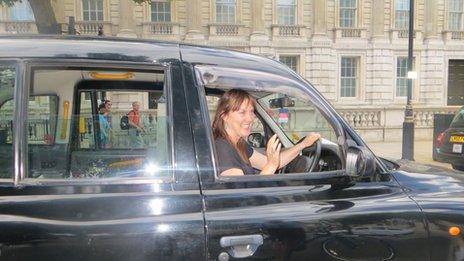
Sasha Simmons said that phone apps were not as safe as black cab drivers
When asking tourists and commuters if they knew why the roads around Westminster had come to standstill - the overwhelming answer was no.
"Is it about pay?" asks Zena Snider, from Ealing, who was attempting to get to Elephant and Castle with her two-year-old son William and getting increasingly frustrated by the lack of information.
"It has disrupted my day as you can't travel on the Tube with a buggy so I wanted to take the bus. But there are no buses, we're going to walk but if we can't make it I will have to go home."
When she realises the reason behind the protest, Zena is less sympathetic: "What do they hope to achieve?
"Competition is healthy. They're only antagonising everyone here."
However, other commuters backed the cabbies, like Kathleen O'Sullivan, who works as a technical manager in a theatre.
"I have a friend who works a a taxi driver and supports his family that way," she said.
"It takes a lot of time to train and I think it is great they are coming out and taking a stand."
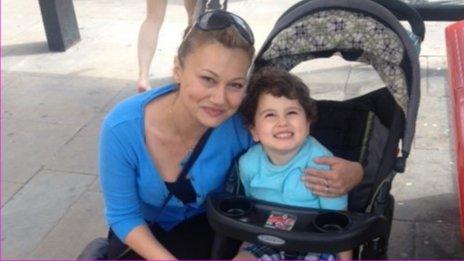
Zena was forced to walk to her destination after the roads became gridlocked
- Published11 June 2014
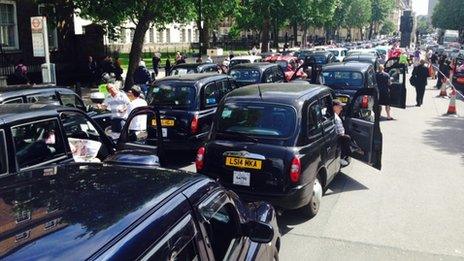
- Published11 June 2014
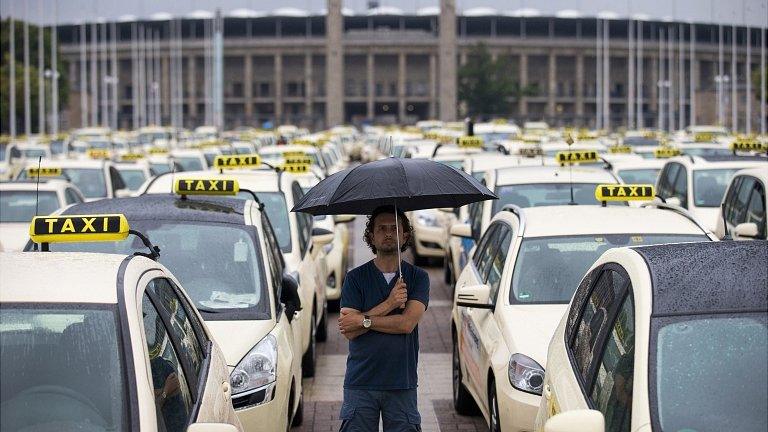
- Published8 June 2014
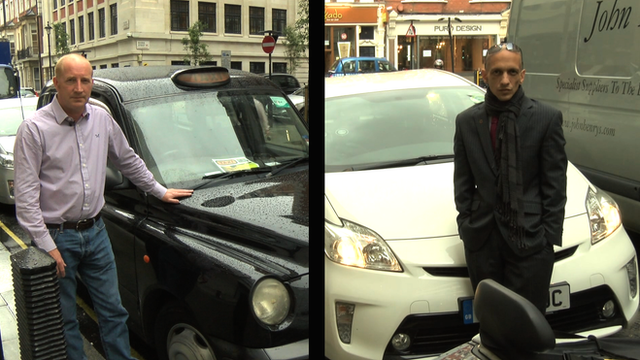
- Published9 June 2014
- Published8 May 2014
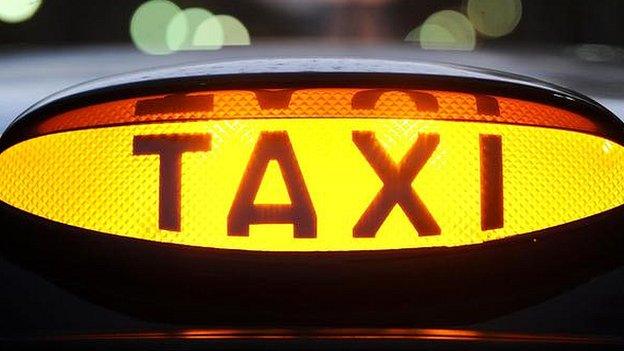
- Published9 June 2014
